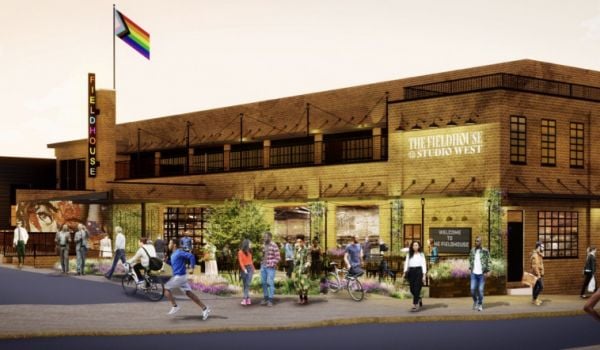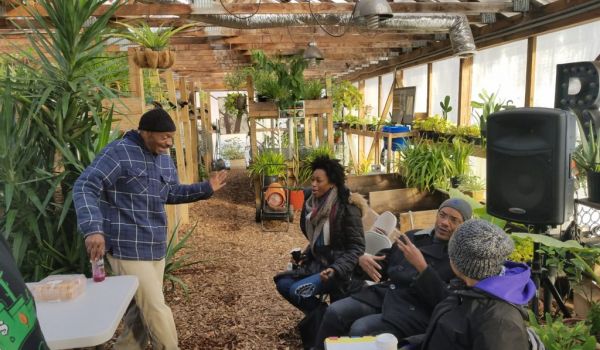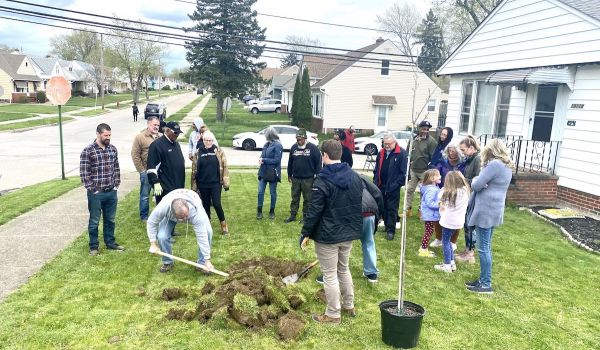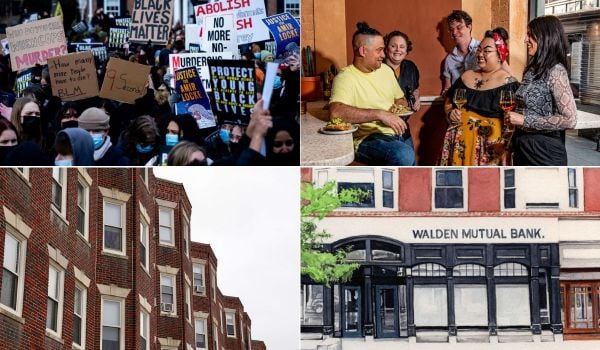When Cleveland was bidding to host one of the political conventions of 2016 — they were finalists for both the Republican and Democratic events — some city leaders speculated that neither was worth the trouble. Not because of all the problems they might bring, but because the declining star power of the political spectacle doesn’t garner that much of a national spotlight.
In the past few decades, the conventions to nominate candidates for the U.S. presidency have become too scripted and more of an infomercial than a news event. Protests were held by basically the same groups every four years. With nominees long decided and party unity the unexciting “headline,” host cities have been nothing more than a soundstage for a network TV show with mediocre ratings.
But events have changed dramatically since Cleveland was chosen for the Republican National Convention a few years ago, and the scene in town this week is far more relevant than a GOP infomercial. For locals who hoped the 2016 RNC might be a safe way to shine more light on the city, however, the attention might not be all that gratifying.
“No one with the city of Cleveland leadership could have imagined what was going to happen with the political climate and international terrorism events when they made the pitch to host,” says Edward “Ned” Hill, professor of economic development and regional planning at Ohio State University. “The thinking at the time was that Cleveland wanted a political convention to get media exposure for some of the successes it was having and to show some of the assets it has that the nation didn’t know about. And the costs to do that weren’t thought of as being too great, and could be dispersed across the whole region.”
Whether that price is too high may be something that future hosts cities look to July 2016 Cleveland and Philadelphia to factor.
“I think cities in the future are going to reassess more carefully whether hosting a political convention is really worth it,” Hill says. “But all that depends really on how things go in Cleveland this week and Philadelphia [for the Democrats] next week.”
For now, Cleveland is faced with a daunting task of putting on an event that has made it a militarized zone. The city is managing protests that have become much more tense with the recent police killings in Baton Rouge and Dallas, and grappling with a financial picture that also changed. Part of the 2016 RNC deal was Cleveland’s agreement to raise $64 million to pay for everything from hotels for party bigwigs to the conversion of Quicken Loans Arena into what is basically a TV soundstage. But the controversy over the Donald Trump nomination has caused some corporations to downsize their contributions — or pull out entirely — leaving Cleveland $6 million short as the convention begins today.
That shortfall led to an urgent money request last week to Republican fundraiser and power broker (and Las Vegas billionaire) Sheldon Adelson, Politico reported: “Over the past couple months, negative publicity around our potential nominee resulted in a considerable number of pledges backing out from their commitments,” the letter to Adelson from Cleveland business leaders said.
The pullout of corporate sponsors also means that the parties and meetings associated with the convention have gotten smaller, and caterers and event planners in Cleveland are not getting the big financial bump they anticipated. Parties that were booked for 500 people have been cut back to a few hundred; some were canceled altogether.
“I think what happened here is a lot of the companies that come to conventions are publicly traded companies and they may or may not be in love with the presumptive nominee and they may not want the public to know they are supporting him so they scale back or don’t show up at all,” Scott Kuhn of Driftwood Catering told Cleveland Scene. “I think a lot of people were licking their chops a little bit when it was looking like it was going to be a contested convention, and when that fell by the wayside I think corporate America really stared to bail on this thing.”
Meanwhile, there’s 8-foot-high barricade fencing cutting off one section of the central business district from the other in downtown Cleveland and police in riot gear on just about every street corner. At Case Western Reserve University, tensions boiled when the school decided to house 1,900 out-of-town police officers and National Guard personnel in its dorms, and then canceled classes for this week because of safety concerns for students.
“What are we teaching our students when we displace them from their dorms?” an anonymous professor wrote in Belt Magazine last week. “What does it symbolize when a university library closes while security forces store firearms and pepper spray in dorms … .”
After this week and next, cities that bid for future conventions may weigh the cost of hosting differently.
“Starting in Chicago in 1968, cities have dealt with the protests and all that those activities entail, but cities have balanced that off with the fact that all these protestors have to eat and sleep somewhere, and they think the economic benefits of that offset the cost of dealing with [the protestors],” says R. Craig Sautter, a professor of philosophy and author of three books on the history of political conventions in the U.S. “But spontaneous confrontation has changed with social media, making it more difficult to manage and financially support — at least this time around in Cleveland. … The political conventions are becoming more and more like Olympic Games. Lots of cities want to host the games, and promise huge rewards to convince their citizens that it is good to do so, but then realize what a huge headache it is once everyone gets there.”


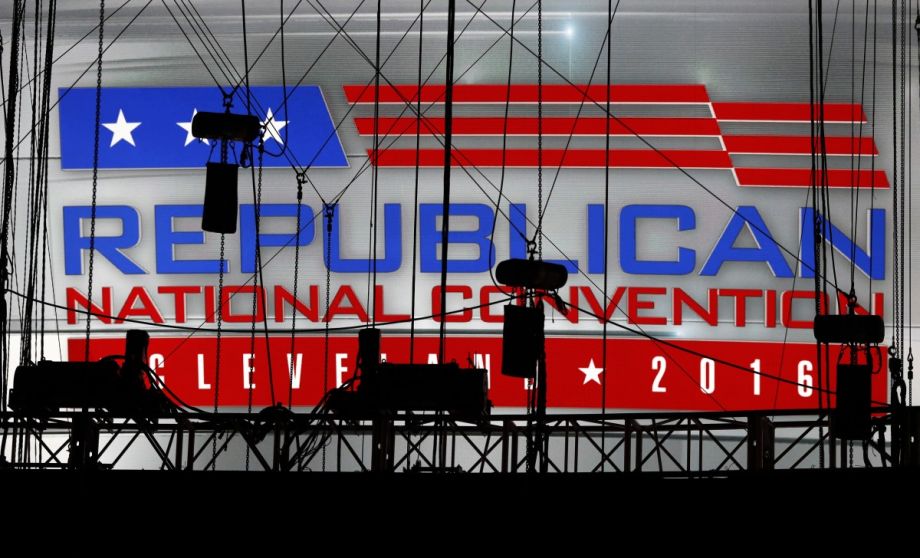
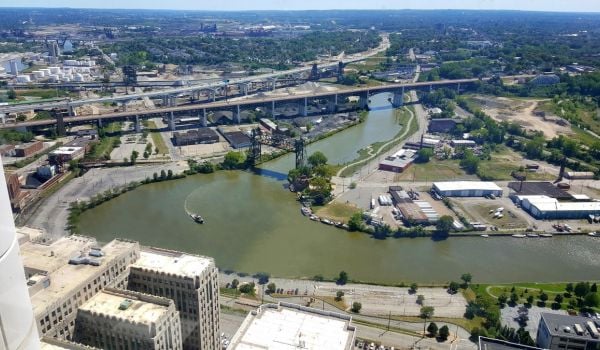
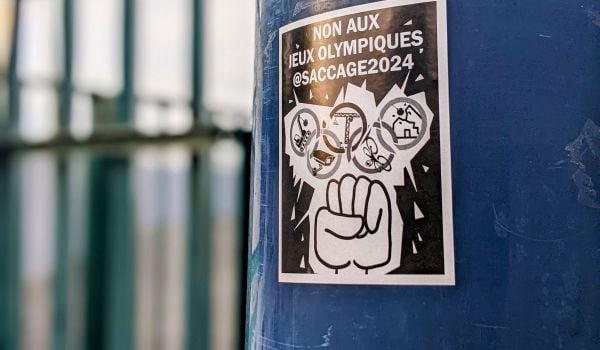
__Sean_Corrigan_from_Cleveland_Sews_(center)__and_Paula_Coggins_from_Oh_Sew_Powerful_(right)_sew_leftover_banners_from_the_NFL_Draft_into_handbags_-_photo_by_Sophie_Kannberg_600_350_80_s_c1.jpeg)
